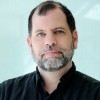Want to know what books Anne-Marie Slaughter recommends on their reading list? We've researched interviews, social media posts, podcasts, and articles to build a comprehensive list of Anne-Marie Slaughter's favorite book recommendations of all time.
1

A revelatory examination of how the wildfirelike spread of new forms of social interaction enabled by technology is changing the way humans form groups and exist within them, with profound long-term economic and social effects-for good and for ill
A handful of kite hobbyists scattered around the world find each other online and collaborate on the most radical improvement in kite design in decades. A midwestern professor of Middle Eastern history starts a blog after 9/11 that becomes essential reading for journalists covering the Iraq war. Activists use the Internet and e-mail to... more A revelatory examination of how the wildfirelike spread of new forms of social interaction enabled by technology is changing the way humans form groups and exist within them, with profound long-term economic and social effects-for good and for ill
A handful of kite hobbyists scattered around the world find each other online and collaborate on the most radical improvement in kite design in decades. A midwestern professor of Middle Eastern history starts a blog after 9/11 that becomes essential reading for journalists covering the Iraq war. Activists use the Internet and e-mail to bring offensive comments made by Trent Lott and Don Imus to a wide public and hound them from their positions. A few people find that a world-class online encyclopedia created entirely by volunteers and open for editing by anyone, a wiki, is not an impractical idea. Jihadi groups trade inspiration and instruction and showcase terrorist atrocities to the world, entirely online. A wide group of unrelated people swarms to a Web site about the theft of a cell phone and ultimately goads the New York City police to take action, leading to the culprit's arrest.
With accelerating velocity, our age's new technologies of social networking are evolving, and evolving us, into new groups doing new things in new ways, and old and new groups alike doing the old things better and more easily. You don't have to have a MySpace page to know that the times they are a changin'. Hierarchical structures that exist to manage the work of groups are seeing their raisons d’être swiftly eroded by the rising technological tide. Business models are being destroyed, transformed, born at dizzying speeds, and the larger social impact is profound.
One of the culture's wisest observers of the transformational power of the new forms of tech-enabled social interaction is Clay Shirky, and Here Comes Everybody is his marvelous reckoning with the ramifications of all this on what we do and who we are. Like Lawrence Lessig on the effect of new technology on regimes of cultural creation, Shirky's assessment of the impact of new technology on the nature and use of groups is marvelously broad minded, lucid, and penetrating; it integrates the views of a number of other thinkers across a broad range of disciplines with his own pioneering work to provide a holistic framework for understanding the opportunities and the threats to the existing order that these new, spontaneous networks of social interaction represent. Wikinomics, yes, but also wikigovernment, wikiculture, wikievery imaginable interest group, including the far from savory. A revolution in social organization has commenced, and Clay Shirky is its brilliant chronicler. less 
Tyler CowenIf you had to pick one individual who was the sharpest and most prescient commentator on the web and the internet it would be Clay. (Source)

Lev GrossmanShirky is simply the best person at articulating what’s very weird and new about what’s going on. (Source)
2

Anne-Marie SlaughterNonzero is a book that everybody should read. It is a big book – not a quick read. The Logic of Human Destiny – that’s a pretty big subject. What it essentially does is tell the story of steadily increasing complexity, of increasingly complex human interactions, from cave societies to current Shanghai. Wright sees human interactions as a Nonzero sum. While primitive systems might have run on... (Source)

Jason KottkeOne of the very few books I think about all the time is Robert Wright’s Nonzero: The Logic of Human Destiny.
Nonzero is an intriguing lens through which to view current events (which is why it’s often in my thoughts). As Chopra notes, cooperation isn’t always the norm…Trumpist Republicans and Brexit proponents are both veering towards the zero sum end of the spectrum and I don’t think it will... (Source)
3

In the 1980's, James Gleick's Chaos introduced the world to complexity. Now, Albert-László Barabási's Linked reveals the next major scientific leap: the study of networks. We've long suspected that we live in a small world, where everything is connected to everything else. Indeed, networks are pervasive--from the human brain to the Internet to the economy to our group of friends. These linkages, it turns out, aren't random. All networks, to the great surprise of scientists, have an underlying order and follow simple laws. Understanding the structure and behavior of these networks will help us... more In the 1980's, James Gleick's Chaos introduced the world to complexity. Now, Albert-László Barabási's Linked reveals the next major scientific leap: the study of networks. We've long suspected that we live in a small world, where everything is connected to everything else. Indeed, networks are pervasive--from the human brain to the Internet to the economy to our group of friends. These linkages, it turns out, aren't random. All networks, to the great surprise of scientists, have an underlying order and follow simple laws. Understanding the structure and behavior of these networks will help us do some amazing things, from designing the optimal organization of a firm to stopping a disease outbreak before it spreads catastrophically.In Linked, Barabási, a physicist whose work has revolutionized the study of networks, traces the development of this rapidly unfolding science and introduces us to the scientists carrying out this pioneering work. These "new cartographers" are mapping networks in a wide range of scientific disciplines, proving that social networks, corporations, and cells are more similar than they are different, and providing important new insights into the interconnected world around us. This knowledge, says Barabási, can shed light on the robustness of the Internet, the spread of fads and viruses, even the future of democracy. Engaging and authoritative, Linked provides an exciting preview of the next century in science, guaranteed to be transformed by these amazing discoveries.From Linked:This book has a simple message: think networks. It is about how networks emerge, what they look like, and how they evolve. It aims to develop a web-based view of nature, society, and technology, providing a unified framework to better understand issues ranging from the vulnerability of the Internet to the spread of diseases. Networks are present everywhere. All we need is an eye for them...We will see the challenges doctors face when they attempt to cure a disease by focusing on a single molecule or gene, disregarding the complex interconnected nature of the living matter. We will see that hackers are not alone in attacking networks: we all play Goliath, firing shots at a fragile ecological network that, without further support, could soon replicate our worst nightmares by turning us into an isolated group of species...Linked is meant to be an eye-opening trip that challenges you to walk across disciplines by stepping out of the box of reductionism. It is an invitation to explore link by link the next scientific revolution: the new science of networks. less 
Anne-Marie SlaughterLinked is about how to understand the world in terms of networks. To understand network science the first thing to do is to visualise the world the way you visualise the Internet or even the universe – hubs of infinitely intersecting networks. As the author says, everything can be reduced to links and nodes. This book is a very accessible introduction to the science of networks and to how to... (Source)

Bill BarhydtWritten before Facebook, this book predicts what the world will look like with amazing precision. (Source)
4

What do Wikipedia, Zip Car's business model, Barack Obama's presidential campaign, and a small group of lobster fishermen have in common? They all show the power and promise of human cooperation in transforming our businesses, our government, and our society at large. Because today, when the costs of collaborating are lower than ever before, there are no limits to what we can achieve by working together.
For centuries, we as a society have operated according to a very unflattering view of human nature: that, humans are universally and inherently selfish creatures. As a... more What do Wikipedia, Zip Car's business model, Barack Obama's presidential campaign, and a small group of lobster fishermen have in common? They all show the power and promise of human cooperation in transforming our businesses, our government, and our society at large. Because today, when the costs of collaborating are lower than ever before, there are no limits to what we can achieve by working together.
For centuries, we as a society have operated according to a very unflattering view of human nature: that, humans are universally and inherently selfish creatures. As a result, our most deeply entrenched social structures - our top-down business models, our punitive legal systems, our market-based approaches to everything from education reform to environmental regulation - have been built on the premise that humans are driven only by self interest, programmed to respond only to the invisible hand of the free markets or the iron fist of a controlling government.
In the last decade, however, this fallacy has finally begun to unravel, as hundreds of studies conducted across dozens of cultures have found that most people will act far more cooperatively than previously believed. Here, Harvard University Professor Yochai Benkler draws on cutting-edge findings from neuroscience, economics, sociology, evolutionary biology, political science, and a wealth of real world examples to debunk this long-held myth and reveal how we can harness the power of human cooperation to improve business processes, design smarter technology, reform our economic systems, maximize volunteer contributions to science, reduce crime, improve the efficacy of civic movements, and more.
For example, he describes how:
- By building on countless voluntary contributions, open-source software communities have developed some of the most important infrastructure on which the World Wide Web runs
- Experiments with pay-as-you-wish pricing in the music industry reveal that fans will voluntarily pay far more for their favorite music than economic models would ever predic
- Many self-regulating communities, from the lobster fishermen of Maine to farmers in Spain, live within self-regulating system for sharing and allocating communal resources
- Despite recent setbacks, Toyota's collaborative shop-floor, supply chain, and management structure contributed to its meteoric rise above its American counterparts for over a quarter century.
- Police precincts across the nation have managed to reduce crime in tough neighborhoods through collaborative, trust-based, community partnerships.
A must-read for anyone who wants to understand the dynamics of cooperation in 21st century life, The Penguin and the Leviathan not only challenges so many of the ways in which we live and work, it forces us to rethink our entire view of human nature. less 
Bruce SchneierBenkler challenges the pervasive economic view that people are inherently selfish creatures, and shows that actually we are naturally cooperative. (Source)

Anne-Marie SlaughterBenkler looks at research in neuroscience, biology, sociology and computer science to show how we can encourage self-organised cooperative behaviour. (Source)
5

The fearless Tina Rosenberg has spent her career tackling some of the world's hardest problems. The Haunted Land, her searing work on how Eastern Europe faced the crimes of Communism, garnered both the National Book Award and the Pulitzer Prize. In Join the Club, she identifies a brewing social revolution that is changing the way people live, based on harnessing the positive force of peer pressure. Her stories of peer power in action show how it has reduced teen smoking in the United States, made villages in India healthier and more prosperous, helped minority students get... more The fearless Tina Rosenberg has spent her career tackling some of the world's hardest problems. The Haunted Land, her searing work on how Eastern Europe faced the crimes of Communism, garnered both the National Book Award and the Pulitzer Prize. In Join the Club, she identifies a brewing social revolution that is changing the way people live, based on harnessing the positive force of peer pressure. Her stories of peer power in action show how it has reduced teen smoking in the United States, made villages in India healthier and more prosperous, helped minority students get top grades in college calculus, and even led to the fall of Slobodan Milosevic. She tells how creative social entrepreneurs are starting to use peer pressure to accomplish goals as personal as losing weight and as global as fighting terrorism. Inspiring and engrossing, Join the Club explains how we can better our world through humanity's most powerful and abundant resource: our connections with one another. less 
Anne-Marie SlaughterThese books are all linked, no pun intended. Tina Rosenberg had a column for The New York Times called “The Fix”, where she looked at how you fix social problems. One of her answers is that you basically harness peer pressure for good. She would use the example of Alcoholics Anonymous, too. If you want to break your addiction you surround yourself with other people who want to do the same and... (Source)
Don't have time to read Anne-Marie Slaughter's favorite books? Read Shortform summaries.
Shortform summaries help you learn 10x faster by:
- Being comprehensive: you learn the most important points in the book
- Cutting out the fluff: you focus your time on what's important to know
- Interactive exercises: apply the book's ideas to your own life with our educators' guidance.



